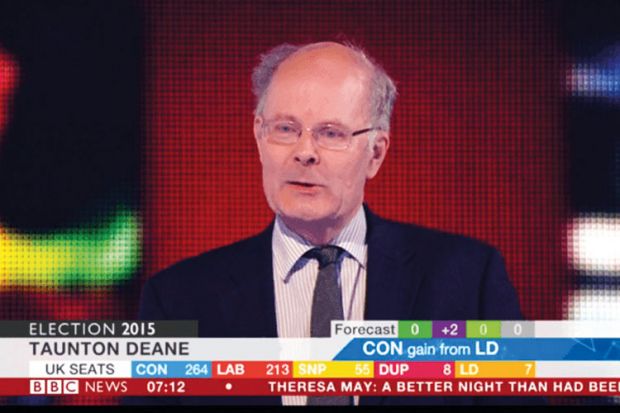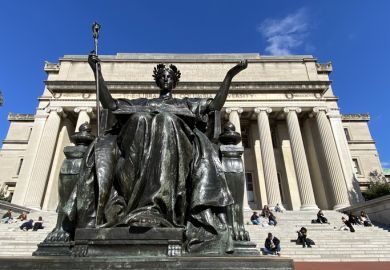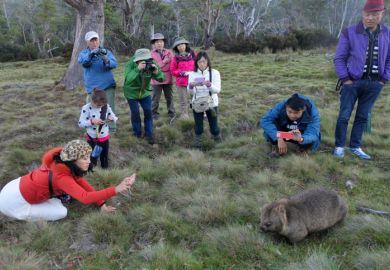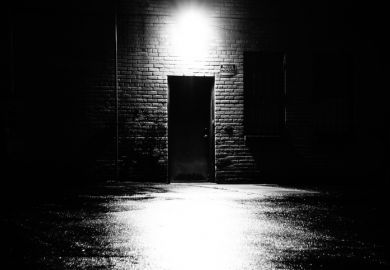Source: BBC
Star turn: John Curtice got closest
As Big Ben began to chime at 10pm on 7 May, the exit poll predicted a large Conservative lead and delivered the biggest shock of the UK’s general election.
John Curtice, professor of politics at the University of Strathclyde – who became one of the stars of the BBC’s election night coverage – led a team of half a dozen academics who crunched data throughout the day to produce the exit poll, getting far closer to the eventual result than just about every previous opinion poll.
Professor Curtice, who has been involved in the exit poll since 1992, told Times Higher Education that in the UK it is “very difficult to come up with a representative sample of polling stations. So the secret behind the way in which the exit poll has been done in the past three or four elections is [that] we don’t even try.”
The poll was based on interviews with about 20,000 individuals who had just voted at one of 141 selected polling stations around the UK.
Professor Curtice explained that while levels of support for political parties vary across different parts of the UK, “the variance in the change in party support [between elections] varies an awful lot less”.
He continued: “Therefore it’s much easier to come up with an accurate estimate of the change in party support than it is the level of party support.”
Those 141 polling stations are ones “for which we have, in most cases, the data from the exit poll in the previous election,” Professor Curtice said. “Our estimates for changing party support for each polling location are derived by comparing the [2015] result…with the data from 2010.”
In modelling the data, the team then had to factor in “the characteristics of the constituencies in which those polling locations lie”.
They could then, Professor Curtice continued, “derive an equation for how much each party’s support was going to be up or down since the last election depending on the characteristics of the constituency” and apply that nationwide.
As soon as the exit poll result was unveiled, Lord Ashdown, the former Liberal Democrat leader, memorably said he would “publicly eat his hat” if the prediction was correct.
Did that shake Professor Curtice’s faith in his calculations?
“No. I’ve been here before,” he said, adding that in 2010 – when the exit poll was proved correct in showing that the Lib Dems would lose seats – “Lord Ashdown said something quite similar”.
“Is one a bit more concerned about any discovery when you’ve got something that is apparently completely different from what everybody else has? Yeah, sure, of course. But, frankly, there’s nothing you can do about it,” he said.
As a postgraduate at Nuffield College, Oxford, Professor Curtice studied under the prominent psephologist Sir David Butler – an experience that led to his decision to take a public role as an academic.
Professor Curtice said that he grew up in an academic culture “where engaging with the real world was part of an academic’s job”, an approach that he felt had been damaged by research assessment in academia more widely, although efforts were being made to reverse this.
Being part of exit polls is “a white-knuckle ride”, he said. But he described it as a “challenge to [the] academic skills of being able to interpret, analyse and understand data; and to do it quickly and…communicate it in a way that the world understands.”
Register to continue
Why register?
- Registration is free and only takes a moment
- Once registered, you can read 3 articles a month
- Sign up for our newsletter
Subscribe
Or subscribe for unlimited access to:
- Unlimited access to news, views, insights & reviews
- Digital editions
- Digital access to THE’s university and college rankings analysis
Already registered or a current subscriber? Login





